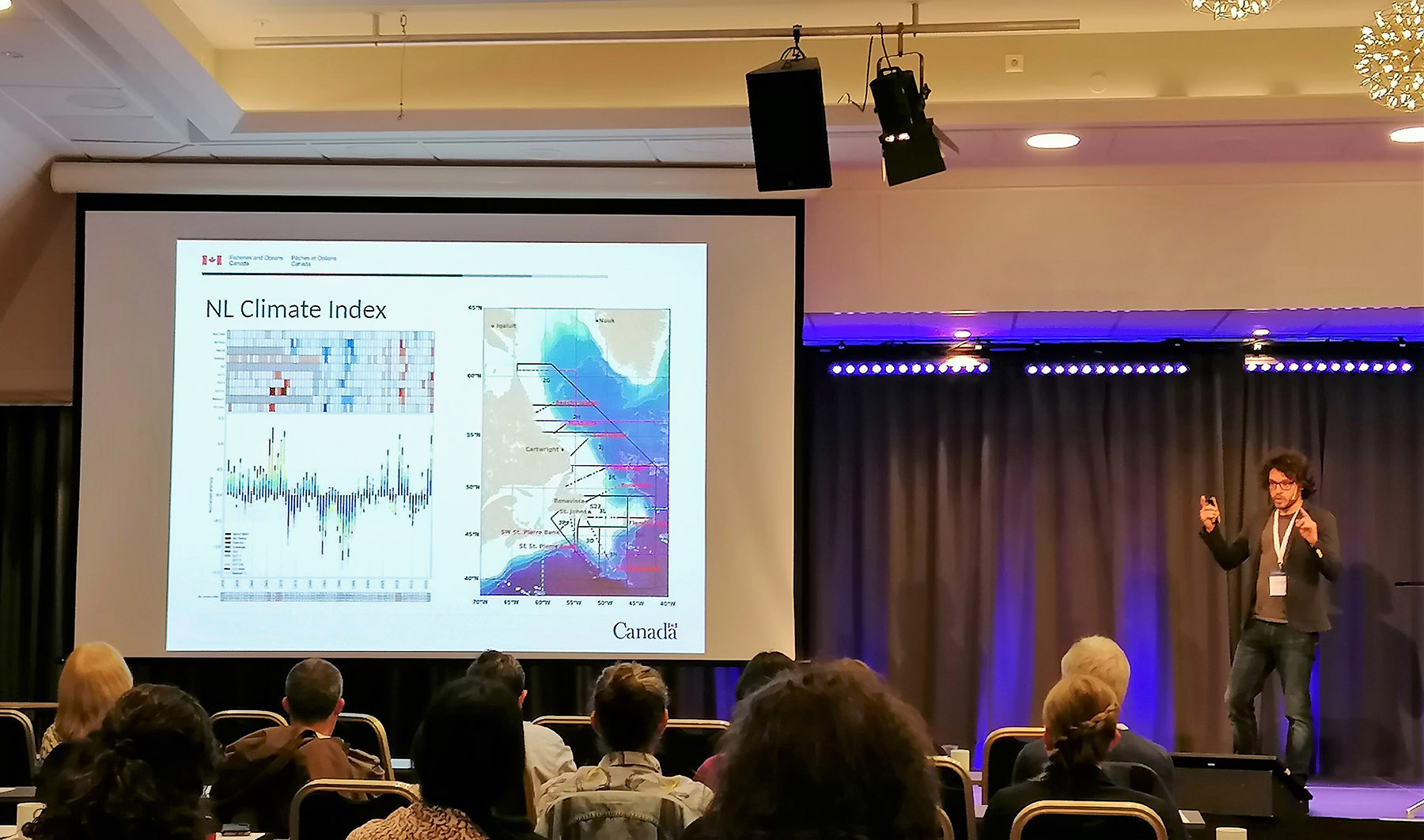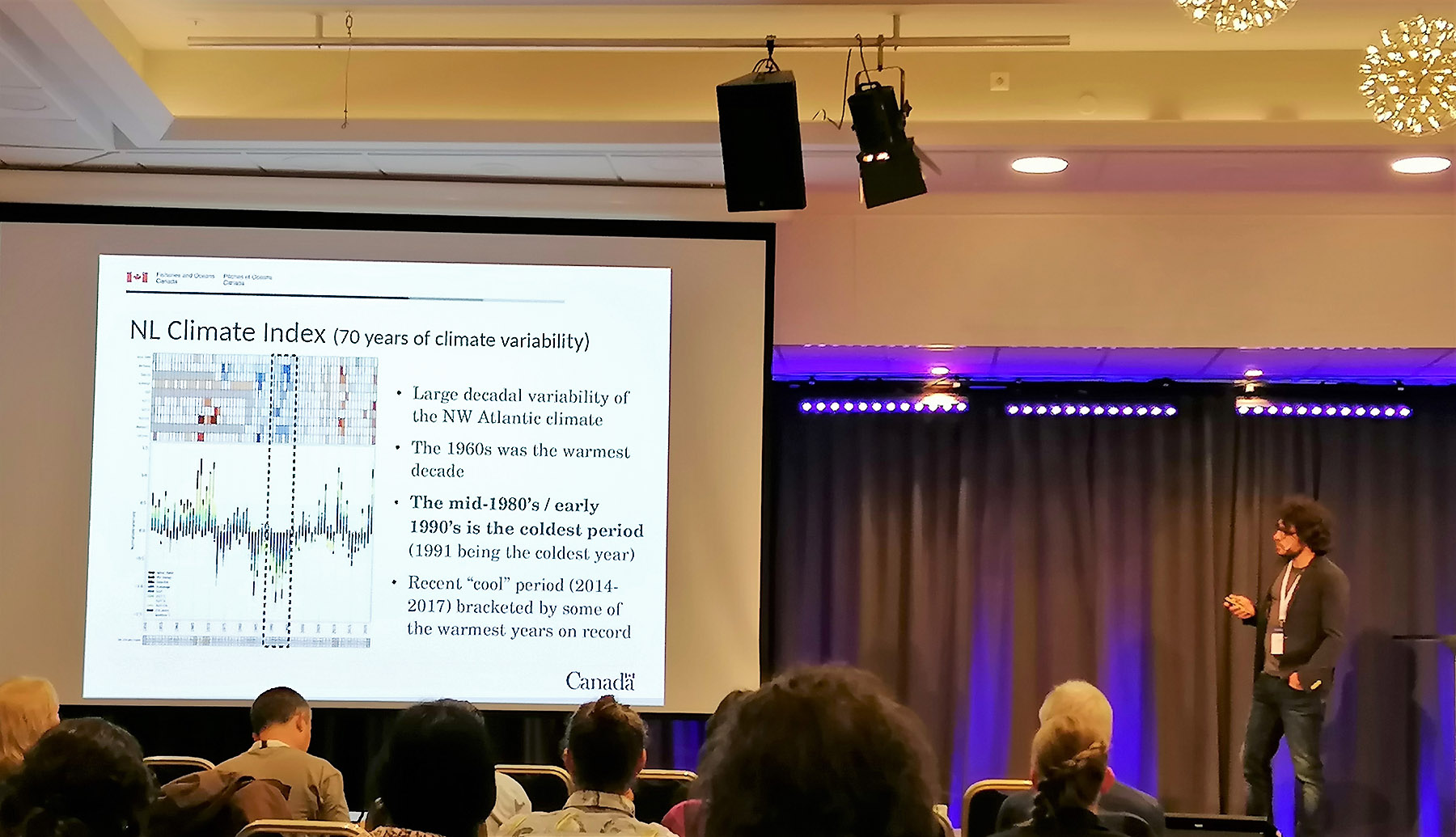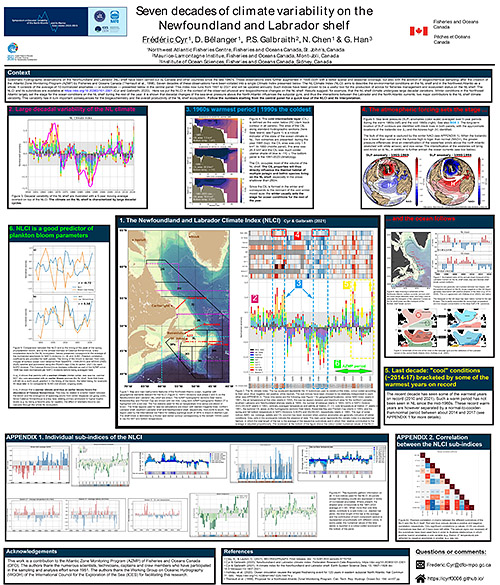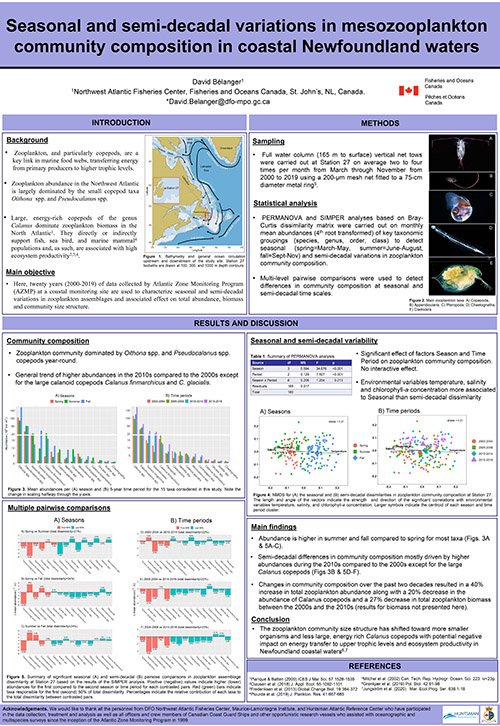Frederic Cyr presented an overview of the climatic-oceanographic changes in the NAFO regulatory area during the last decade. A composite Climate Index was suggested to give a global perspective of the changes in the ocean.


Abstract:

Systematic hydrographic observations on the Newfoundland and Labrador (NL) shelf have been carried out by Canada and other countries since the late 1940's. These observations were further augmented in 1998 (both with a better spatial and seasonal coverage, but also with the addition of biogeochemical sampling) after the creation of the Atlantic Zone Monitoring Program (AZMP) by Fisheries and Oceans Canada. Seven decades of these observations have been collated into the NL Climate Index (NLCI) that aims to describe the environmental conditions on the NL shelf and in the Northwest Atlantic as a whole. It consists of the average of 10 normalized anomalies. This index now runs from 1951 to 2021 and will be updated annually. Such indices have been proven to be a useful tool for the production of advice for fisheries management and ecosystem status on the NL shelf. Results suggest, for example, that the NL shelf climate undergoes large decadal variations. Winter conditions in the Northwest Atlantic largely set the stage for the ocean conditions on the NL shelf during the rest of the year. It is shown that decadal changes of the sealevel pressure above the North Atlantic influences the subpolar gyre, and thus the interactions between the Labrador and the North Atlantic currents, two major contributors to the NL shelf climate variability. This variability has in turn important consequences for the biogeochemistry and the overall productivity of the NL shelf ecosystem.
David Bélanger also presented a twenty-year perspective of the variability of the mesozooplankton community in the Newfoundland waters. This trophic element from the food chain is a key link in marine food webs, transferring energy from primary producers to higher trophic levels.
Abstract:

Zooplankton are key organisms in marine food webs. They effectively transfer energy from primary producers to the upper trophic levels through predation from selective planktivores and other heterotrophs that primarily target specific species or taxa. Here twenty years (2000-2019) of data collected on average twice monthly by the Atlantic Zone Monitoring Program at a coastal monitoring station served to describe mesozooplankton intra- and interannual signals in Newfoundland coastal waters. Multivariate and univariate methods were applied to abundance data for eleven copepod and four non-copepod taxa to quantify seasonal (spring, summer, and fall) and semi-decadal variations in zooplankton community composition. Zooplankton assemblage was dominated by small cyclopoid Oithona (~50%) and calanoid Pseudocalanus (~20%) copepods year round. Summer assemblages were characterized by a 4.5x increase in the abundance of Calanus finmarchicus compared to spring, while fall assemblages are characterized by 2-4x increase in Oithona, Centropages, and Temora longicornis copepods and pteropods, along with a 50-90% decrease in large Calanus glacialis and C. hyperboreus copepods and cladocerans relative to summer. Zooplankton assemblages also varied on a semi-decadal to decadal scale. The abundance of C. finmarchicus increased ~1.5x between the early and the late 2000s while that of Pseudocalanus and Oithona copepods increased ~1.7x between the mid-2000s and late 2010s, particularly in the fall. The abundance of appendicularians more than tripled during the 2010s compared to the 2000s. More work is needed to understand how the changes in zooplankton community structure affects energy flow to upper trophic levels
The former NAFO scientist, Brain Petrie, was honoured for his contribution to the extraordinary understanding of long-term variability in Atlantic oceanic hydrography and its ecosystems. Brian Petrie has presented a very interesting work on the temporal evolution of the state of the Flemish Cape cod stock as defined by key phenotypic parameters during the three decades of its collapse and subsequent recovery and its impact on the broader fish community.